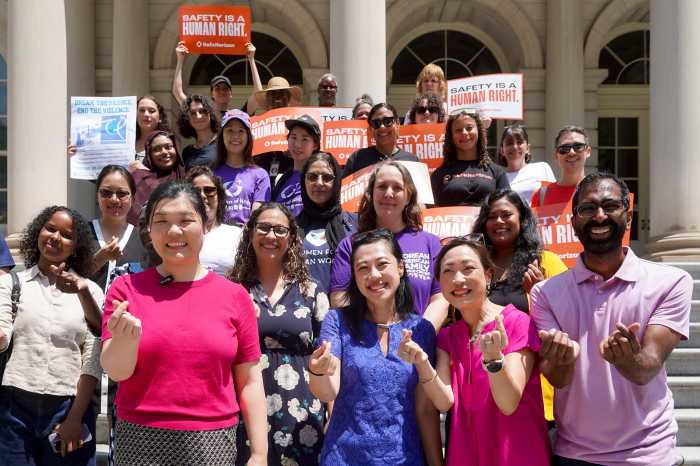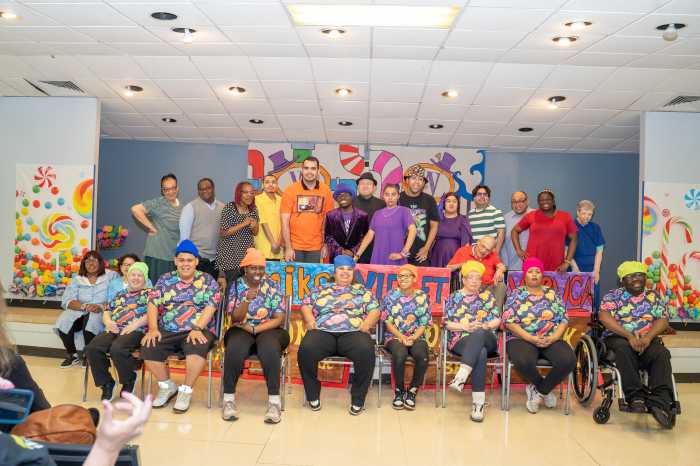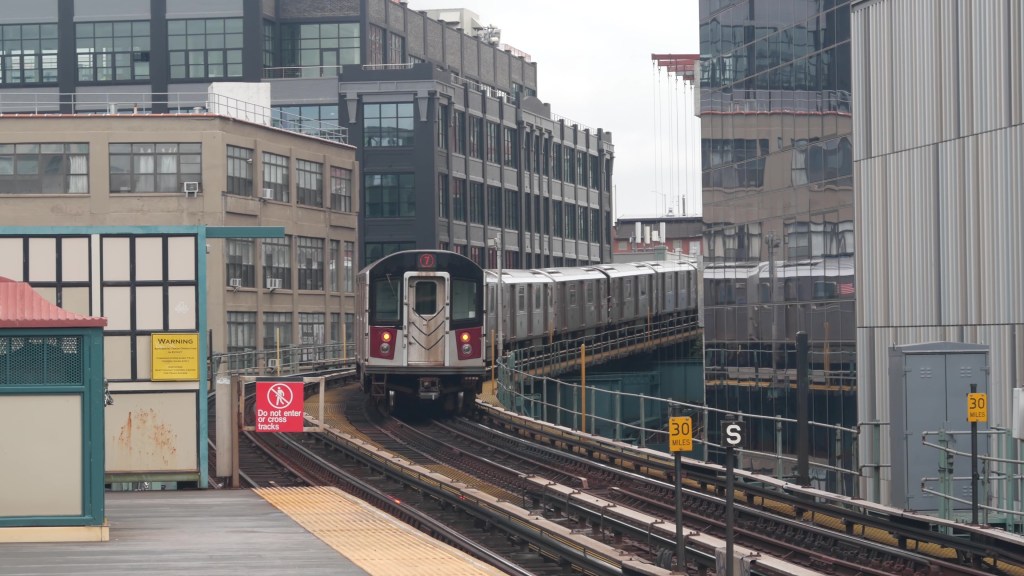By Michael Morton
Spurred on by the plight of a Bayside boy with a rare genetic disorder, 100 walkers gathered in Crocheron Park Sunday at a fund-raiser for a foundation run by the youngster's family. While still short of the $1 million required to turn a scientific breakthrough into a practical response to the condition, the boy's family was nevertheless surprised by the grand total of $10,000 and considered it a first step.”You have to do something about it,” Helen Evangelista said of the disease her 3-year-old son Matthew was born with, mucopolysaccharidoses VII, or MP VII. The condition, more commonly known as Sly Syndrome, is part of a family of genetic disorders and affects only about 40 people worldwide. It is characterized by the inability to produce certain enzymes that break down and recycle cells when they die naturally, leaving the debris to collect and cause problems in the body. The accumulating damage eventually leads to an early death, sometimes as a teen, sometimes as an adult.”I didn't know what it was,” Helen Evangelista said about receiving the diagnosis a couple of years ago. “I said what am I going to do, just wait for my son to die?”Matthew was born in critical condition and lived on a day-to-day basis, although doctors could not initially explain why. He recovered and went home, despite continuing to suffer problems with breathing and with his spleen and liver.A few months later, however, Matthew fell in his crib and appeared to be paralyzed. When he was taken to Schneider Children's Hospital in New Hyde Park for a corrective operation, another doctor finally diagnosed his condition and said there was no cure.”That's what made me so devastated,” Helen Evangelista said. She said Matthew is now doing well, but has a tracheotomy for breathing and a feeding tube and must wear a head and body brace. He can walk with assistance but largely uses his wheelchair and for the last two years has lived in St. Mary's Hospital for Children in Bayside. His mother visits him every day.There are currently no cures for Sly Syndrome, but BioMarin, a genetics company in California, has developed a process to replace the enzymes. While the process would not help stop damage to the brain and the nervous system, it could address other bodily functions and could eventually lead to a full solution. But the small number of potential users precludes the company from moving forward without private or public funding of the $1 million cost, hence the fund-raiser.”I hope they can become a catalyst to drive other groups to give support to help get the therapy developed,” BioMarin's Dr. Emil Kakkis said. He said a foundation in Texas had started with $371 from a bake sale, then gone on to raise hundred of thousands of dollars to get the treatment started for a similar disorder.Helen Evangelista said she was not sure if they could raise the money in time to help her son but said they had to try. In the meantime, “Matthew's a happy boy,” she said. “He makes you happy in spite of everything.”



































